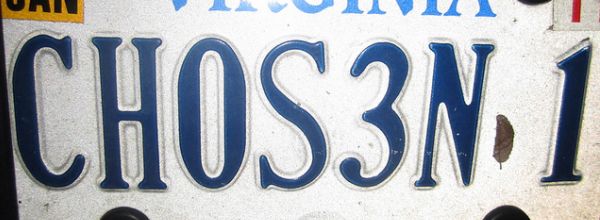Scientific meetings provide an opportunity to learn, network, and explore new ideas. They are also an exciting break from the usual lab routine. Although organizing a Departmental or Institutional academic event takes up your research time, the experience helps develop leadership, project and budget management, and problem solving skills that will make your CV shine. It is also a great way to network with key contacts for the future, get your name known in your research field, and feel like part of the academic community!
Here’s a quick guide to making your first academic event a reality…
Planning the Big Day
Before you start planning, establish the aim and intended audience of your event. Find a team of similarly enthused academics to help plan and execute the big day. Make sure the organizing committee is large enough to handle all the responsibilities (outlined below), but not so large that there is the potential for communication issues to arise. Depending on the size of the event, it is advisable to start the planning process at least 9 months in advance.
The key responsibilities of organizing an academic event are broadly categorized as follows:
- Funding
In addition to registration fees (if being charged), the majority of funding will come from sponsors. Check if you are eligible for researcher-led initiative funding through your university or institute. Postgraduate organizations might also be able to use some of their years budget to help you out. It is also best to get in touch with the professional body in your subject area and industry contacts early. The graduate school careers professionals or the administration at your department or school may know local bodies that could help.Have a clear budget. This increases your chances of getting sponsors. Get in touch with others who have organised a similar event for a starting point.Enhance your chance of securing industry funding by allotting some time and space for industry presentations or demos. If your event includes a competition (e.g., student poster competition), offer to name the award after the sponsor (e.g., the Thermo Fisher award for best poster presentation). Attendance by industry personnel is also a good way for them to meet potential employees and for students in academia to get exposure to available industry jobs. Finally, don’t forget about creative fundraising initiatives – bake sales or movie nights could also help cover some of the costs of smaller events. - Program organization
It’s important to choose good keynote speakers who will draw a decent-sized crowd to your event. Contact speakers early. If they need to travel far, try to time your event around their other commitments in the same area.Pick a date and time that does not clash with other major departmental or institutional events (you might also want to avoid the day the gardeners have designated to add fertiliser to the University lawn… true story!). Alternatively, host your event as a satellite meeting of a larger conference, or as a conference in its own right. Not sure what to call your event? PhD Comics has you covered!Ensure you have a paper submission and review system in place. When scheduling speakers, keep in mind that a mix of senior scientists and junior scientists works better. Be inclusive and encourage your peers and colleagues to get involved with your event. When organising the program, allow plenty of time for socializing. Breaks, meals, and poster sessions are excellent for networking, meeting potential collaborators, and troubleshooting your (lab-based) problems. - Logistics
Decide if you will be hosting the event at your university or institute, or an external venue. Make sure to account for these costs in your budget. Book the venue/rooms early.To organise catering, ensure that you ask people to register early (and specify any dietary requirements) so that you have a final count at least a week before the event. If you are unsure how many people will turn up for the networking sessions, it is probably best to under-cater. Don’t forget to include water and drinks!Organise any equipment that you need for the presentations, e.g. computer equipment, laser pointers, etc., in advance. If your event includes a poster session, ensure that you organise poster-boards for the day. Organise required signage, e.g. room names/numbers, catering, toilets, breakout sessions etc.Depending on the size of the event or venue requirements, you might also need to arrange security for the event.If your budget allows, consider putting together an ‘attendee pack’ for the day, consisting of the programme, presenter list, note paper, pens, fliers from sponsors, and feedback forms (which will help gain insight into the strengths and weakness of your academic event). - Promotion and marketing
Make sure you market the event. Use posters, e-flyers, and other promotional materials. Don’t forget to account for these costs in your budget. Find appropriate email lists or newsletters to advertise your event. Attempt to reach a diverse group of people by making the effort to go to other campuses/classes/labs. Social media, especially the University or Institute Facebook page, is also be a great platform to spread the word.Don’t forget to check if your event sponsors want to be acknowledged on promotional material, and include sponsor logos, if appropriate. If you plan to host a similar event annually and your budget allows, consider including branded merchandise (i.e., pen/stress ball/tote) in your ‘attendee pack’, which serves as continued advertisement of your event.
It’s a good idea to set up sub-committees to look after each key responsibility area. If you plan to include a competition as an incentive for students to participate in your event, then ensure that you also organise suitable awards and judges.
Before The Event…
Brief speakers on their audience, the expected length of their talk, information on getting to the venue, and if you will be paying for any travel expenses. Provide them with a copy of the program to avoid any duplication. Let your speakers know if you want them to send you their presentations in advance (a good idea!).
If your event includes a poster session, provide presenters with adequate information. If possible, set up posters a day before the main event.
Finally, ensure you have enough helpers on the day to (wo)man the registration table, introduce speakers and chair sessions, and pass microphones for questions. If you don’t have an extra pair of hands to help serve the food, include labels so those with dietary restrictions know what they can eat.
On The Day…
Set up the registration table with delegate packs and name-badges (consider including a box for recycling at the end of the day!). Check if external speakers need to store their luggage for the duration of the event. Make sure all organisers are aware of the location of toilets, any breakout sessions, and lunch.
If the presentations are loaded on the day, assign someone in the organizing committee to oversee this. Ensure you have water and tissues on hand for speakers who need it. Provide the chair of each session access to a timer/clock so that the day ticks along well. It is even more important if you have parallel sessions at your event, because it is important the sessions remain in-sync so that attendees can move between presentations.
If you are presenting awards, host an awards ceremony to wrap up the day. Take some time and thank the presenters and sponsors, and give credit to all those who were involved in making the event a success.
But most of all… make sure you enjoy the day; your hard work is sure to pay off!

After The Academic Event
If you received funding or a grant for the event, check if you need to write a final report. If you had judges at your event, arrange a token of appreciation for them. Hold a final meeting to discuss how the event went, feedback from the participants, and how you could improve possible future events. Finally, make sure you celebrate your success with your organizing committee!
Did we miss anything? Comment below.
Further Reading
- Corpas M, Gehlenborg N, Janga SC, Bourne PE (2008) Ten Simple Rules for Organizing a Scientific Meeting. PLoS Comput Biol 4: e1000080. https://doi.org/10.1371/journal.pcbi.1000080.
- University of Glasgow. (2010) The Glasgow ‘How to…’ guide for researcher-led activity.





